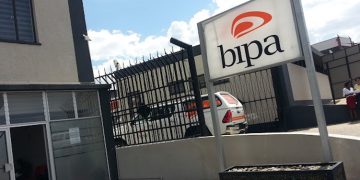
It is not yet the right time for Namibia to delink its dollar from the South African rand due to current economic volatility, experts have warned.
South African financial expert, Daniel Silke said nations, including Namibia dependent on Pretoria’s economy should instill political pressure which would perhaps stimulate it to make better reforms.
He noted that South Africa’s currency has been extremely volatile over the last 10 years in as much as it is a big economic player.
Namibia’s currency is pegged to the South African rand, an alliance that gives the country a fever whenever there are economic issues arising.
For instance, Namibia has been increasing its repo rate following South Africa’s footsteps in an effort not to fall far, due to the fixed exchange regime. Recently the Bank of Namibia increased the repo rate by 50 basis points pushing it to 7.75%, while the prime lending rate for commercial banks now stands at 11.50%.
This was not long after the South African Reserve Bank, increased their repo rate to 8.25% after a 50 basis point push, with the prime lending at 11.75%
“An independent currency at this point in time, does not mean it can perform any better in the short term due to the global economic downturn. But I am in support of nations to stand on their own and determine the value of their currency,” said Silke who delivered a presentation on Namibia as a desired investment hub in Southern Africa – Accelerating Government and Corporate positioning to maximise beneficial outcomes.
“The best way would be for all South African neighbours to pressurise into better governance, and also to introduce policies that encourage foreign direct investments. Therefore, in the case of Namibia it is not the right time for delinkage, but rather good to add its political voice to express concern about South Africa’s weak currency, although this might be difficult for a smaller country to scoff at a larger economy,” he advised.
In addition, he said the interest hikes have been making lives difficult for both people of South Africa including Namibia. In the wake of the global economic instability and geo-political situation, Silke foresees another slight repo rate increment in the future.
“We are however hoping that with the elections coming up in 2024, there might be some political influence to cease any hikes in an effort to entice voters, while in the case of South Africa addressing would be crucial for elections and economically,” he stressed.
Meanwhile, Bank of Namibia Governor Johannes !Gawaxab said Namibia does not have enough reserves to sustain its economy and continue servicing its usual import needs.
“The biggest reason is that Namibia does not have much reserves, we currently have N$47 to N$49 billion, and this is money we need to pay for medicine and fuel as well as pay international loans. However, what is available can only last us for 5 months, which is not enough, unless we build more reserves.”
“Our reserves are too low to consider delinking from South African currency because the moment we delink we are dead in the water. To survive, we need to grow the economy as we build on the green hydrogen and oil, as well as diversification. Once we have 10 or 15 months of sustainable reserves, then we can talk about that,” responded !Gawaxab when asked about what reforms can be instituted for Namibia to be financially independent.













